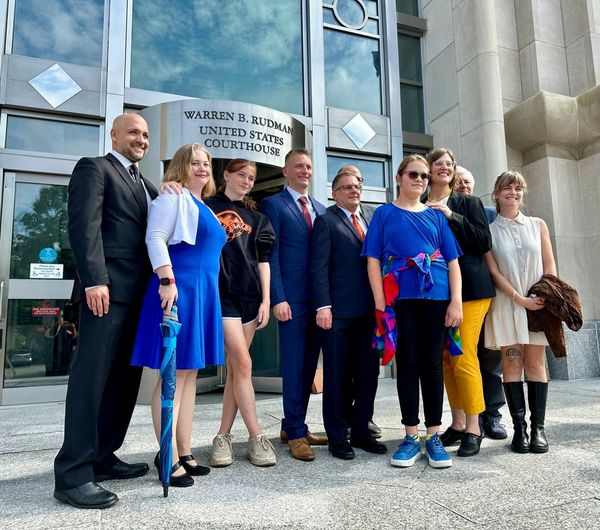One of Texas’ youngest and most celebrated pitmasters is about to hit a new milestone. Grant Pinkerton, the 30-year-old owner behind Pinkerton’s Barbecue in Houston, will soon become the first craft barbecue entrepreneur to open up a location in a second Texan city—a feat even Austin’s Aaron Franklin has famously avoided. But Pinkerton, who fed thousands of first responders during Hurricane Harvey, isn’t easily deterred from a good challenge.
“We have this huge barbecue renaissance going on here in Texas. But nobody’s made that leap yet,” Pinkerton says. “Most people who are in this business are barbecue cooks that run a business. They’re not businesspeople that cook barbecue because it has the element of art and craft to it.”
Pinkerton’s formal foray into the barbecue business started in 2014, when the University of Texas at Austin alum was sleeping on his parents’ couch. He decided to sell his saxophone to buy a trailer and turned it into the barbecue pit of his dreams. The small catering business he started took off two years later when Pinkerton smoked three 6-foot alligators whole at the Houston barbecue festival. After the meat went viral, investors came forward, ready to help Pinkerton open a standalone joint. His namesake, 130-seat restaurant opened in December 2016. Within its first nine months, revenue hit $2 million. Pinkerton then became the first pitmaster ever honored on Forbes’ 30 Under 30 food and drink list. He ended last year with revenues of more than $3 million.
Pinkerton’s 2,000-square-foot Houston flagship remains a classic barbecue joint, while also pushing traditional boundaries. It sells only all-natural, hormone-free beef and prides itself on a craft cocktail program. Pinkerton lives above the restaurant, which comes in handy when he stays up through the night to check on the brisket smoking. It also comes with probably the most important recommendation in Texas barbecue: a spot on the much-coveted Texas Monthly Top 50 BBQ list.
He’s been getting asked about his next location pretty much ever since. More than two years since opening in his hometown of Houston, Pinkerton is now ready to expand. A new Pinkerton’s Barbecue restaurant in downtown San Antonio will be unveiled by 2020.
More than double the original’s size with 250 seats and 5,000 square feet of space overall, the restaurant will be part of a major 20-acre development by San Antonio real estate firm Weston Urban, founded by the former chairman of New York Stock Exchange-traded Rackspace Holdings, Graham Weston. It’s about a four-minute walk from the city’s much-trafficked River Walk and about a mile from The Alamo.
“They want it to be the showcase and anchor,” Pinkerton says, adding a joke: “The guys who are running this project are huge barbecue people. It’s always been a dream of theirs to have a high-end, craft-style barbecue place down there. So they’re making their dream become reality as well.”
While Texan Hill Country is known for great barbecue, Pinkerton says San Antonio’s downtown consists mostly of subpar barbecue chains, though there’s huge demand from local offices and conference tourism, in particular. Of the potential, he does simple math: “In a 10-minute walk of our location, there’s 3,500 hotel rooms.”
Some experts say where an entrepreneur opens their second location is more important than the first. Forbes spoke with Pinkerton to discuss what the deal means for his budding brand and how to franchise a craft like barbecue. This interview has been edited for clarity and brevity.
FORBES: I’m excited to hear how this panned out.
Grant Pinkerton: It’s been a pretty long process, but at this point, now I just have to make sure the next move is the correct one. I get a lot of people coming in and asking about expanding, franchising, that kind of stuff, but with that, you have to make sure every move is calculated.
I think there are a lot of people who would benefit from hearing about how you came to this decision.
One of the wonderful things about our place is we’ve been lucky enough that every single month has been trending better than the last. That’s not very common in this business. There’s usually a lot of ups and downs and expected trends. But to be even in down times of the year and still be gaining revenue, that’s pretty solid.
So people must have been asking for this expansion for quite some time?
The first three months I was open, I thought there was no way I would ever be able to do two. People would ask me, “Oh, when are you gonna do another one?” I was new to the restaurant business. I wasn’t a guy that had grown up in it or anything like that. And it just seemed so overwhelming at the time. Around eight months, I hired a new manager and I had steady guys who were all in working the pit with me. I slowly started acquiring some really great talent. I just saw that this is a demanding business and the only way to grow the business is for me to step back a bit. I can’t be the one cutting all the meat. I can’t be the one making all the potato salad. In this business, this state, this region, and specifically in barbecue, you can feel the need to touch everything.
But then that’s not scalable.
I knew if this was gonna grow into something else, then I needed to work really hard at finding people who I could trust, who had the same vision and work ethic as I did. And we can grow as a team. I could become the owner and the business guy. I still do cook some. I do the barbecue. I go back and I turn briskets every day still, but as a whole, on a macro level, kind of operating the business.
So when did you realize that it made financial sense too?
My dad helps me with my bookkeeping. He was given me the report on everything. We’re digging through the numbers, and just everything was looking really good and we were getting busier and busier and busier. Then people started coming and asking. It was a lot of, “When are you gonna do your next one?” Pretty much everybody wanted another one here in Houston. I didn’t necessarily want to put another one here yet. I didn’t feel like the time was right. It would be splitting the customer base in half. I wanted to grow the brand, and I felt like it would be best for me to put it in another city.
But also going into a city that doesn’t have what you can offer them is even smarter than splitting your customer base. And you’re doing both. San Antonio is more uncharted territory for the kind of barbecue and cocktail experience you’re doing. I think it’s obviously very smart not to go into Austin at this point.
I’m there all the time. There’s like 15 great barbecue joints, and it has a quarter of the population as we do. I understand Austin has a lot of tourism, but there’s other places that have tourism as well. San Antonio has the kind of the restaurant scene downtown that’s growing really quickly.
Tell me a bit about why you decided to do this instead of franchising?
I just don’t think it’s the right time to franchise. Pinkerton’s Barbecue is truly original. From the pits we use to the apartment upstairs to the way we do things, I mean it is and will always be truly an original concept. I don’t think it is suitable, the way we’re doing things, to be mass producing and printing barbecue and dropping it by shipping. So I didn’t feel like I quite had the blueprints for what it would take to create a highly franchise-able barbecue restaurant for somebody. People who are wanting a restaurant franchise, they aren’t barbecue people. When people come talk to me, I’m like, “Okay, well, you can come here for six months and learn how to cook barbecue first. If you don’t do that, your franchise is not gonna work at all.”
Because it’s your name at the end of the day, right?
It’s about that control. Unlike other restaurant concepts, there is a big mix of art and science.
But you’re not officially saying no?
In some ways, it’s something that I’m still chewing on and playing with. But at the end of the day, why give my recipes, my techniques and everything else away too soon?
In the past two years of business, what have you learned? What advice would you give an entrepreneur starting out in the restaurant industry?
Let others help you. So many people want to control everything. They have so much tunnel vision that they miss a lot of great opportunities and people to bring on board that can make their lives easier and grow their brand as well.
I know you were doing crazy hours, especially in the first six, nine months when you were manning the pit by yourself through the night. Anything else?
Always be seeking outside business advice from other people that you respect. And listen to what they say about your business. Be honest with yourself.
So where have you learned your business strategy?
I like to look at other food industries and study from chain restaurants. I had an epiphany one day and I realized, those dudes aren’t in the kitchen cooking the noodles. Or frying the chicken. But they have really awesome people doing that. It doesn’t take anything away from them if they’re not steaming the potatoes. It’s a business at the end of the day.







